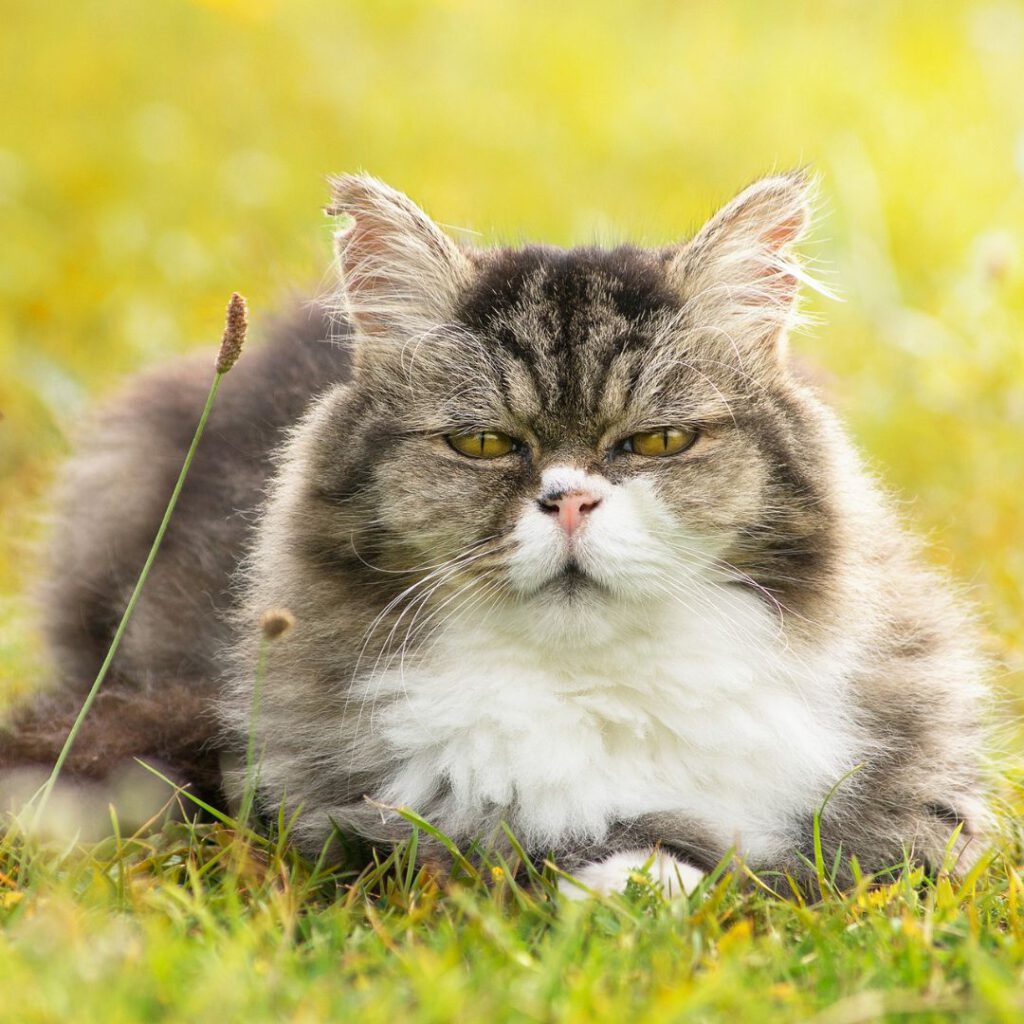As cats age, their needs evolve, requiring more attention and specialized care. Whether you're dealing with an aged cat, old cat, or a beloved pet reaching senior cat ages, understanding the specific needs of your feline companion will help ensure they continue to live a comfortable and happy life. This guide provides comprehensive insights into the care of aging kittens and elderly cats, helping you address their unique challenges.
Understanding your aging cat
Cats are considered senior when they reach around 10 years old, but each cat ages differently. As your aged cat transitions into their golden years, their health, behavior, and daily routines may change. Recognizing these changes early on allows you to adapt your care and make your old cat's later years as enjoyable as possible.
Signs of aging in cats
The most noticeable signs of aging in cats include reduced activity levels, stiffness, or reluctance to jump and play as they once did. Your senior cat may also start to groom less frequently, which can lead to matted fur. Weight fluctuations—either gain or loss—are also common in old cats, as their metabolism slows. Paying attention to these signs is essential to ensure your elderly cat receives the care they need.
Common health issues in senior cats
As cats age, they become more susceptible to certain health issues. Arthritis is common in senior cats, often resulting in reduced mobility. Additionally, aged cats are prone to kidney disease, diabetes, and dental problems. Regular vet checkups are crucial for catching these conditions early, and many of these health concerns can be managed with proper care.
Special needs of an aged cat
As your senior cat ages, their needs become more specific. From dietary adjustments to changes in their living environment, understanding these special requirements ensures your elderly cat remains comfortable and healthy.
Dietary needs
The nutritional needs of an aged cat differ significantly from those of younger cats. Old cats may require food that is easier to chew and digest, with higher protein and fewer calories to manage weight and muscle mass. Look for foods specifically designed for senior cats, as these provide the right balance of nutrients for their slowing metabolism. Adding supplements like glucosamine for joint health can also benefit aging kittens.
Environmental adaptations
As cats get older, their environment may need adjustments. If your aged cat has arthritis, make their favorite resting spots more accessible by using ramps or lower surfaces. Ensure that their litter box is easy to enter and exit, as old cats may have difficulty stepping into high-sided boxes. Providing a warm, quiet space for your elderly cat to rest can also improve their comfort, especially during colder months when joints tend to stiffen.
Addressing behavioral changes
Behavioral changes are often a clear sign that your senior cat is experiencing age-related challenges. These changes may include increased vocalization, litter box issues, or withdrawal from interaction. Understanding and addressing these changes can help both you and your old cat navigate the transition into their senior years.
Increased meowing or crying
One of the most common behavioral changes in old cats is increased vocalization. You might find your old cat constantly meowing or even old cat crying at night. This can be due to confusion, pain, or anxiety. Consult with your vet to rule out any medical causes, and consider providing more comfort and reassurance to your elderly cat, especially during nighttime hours.
Litter box issues
When a cat gets older, it is important to choose a litter that is comfortable and easy to clean, as older cats may have mobility issues or arthritis. For elderly cats, it is important to choose a litter that is soft and comfortable for their little paws. The clumping Sanicat Strong Clumps litter is ideal because it offers a delicate texture. Additionally, these granules have the ability to clump very well; being clumping, the clumps are easily removed, which makes it easier for the cat to enter the litter box. Since older cats may have odor issues, these litters are enriched with active oxygen, which effectively eliminates the unpleasant smell of urine, ensuring a fresher and more pleasant environment at home.
Enriching the lives of senior cats
Even as they age, it’s important to keep your senior cat mentally and physically stimulated. Providing opportunities for play, interaction, and comfort can help maintain their quality of life and keep them engaged.
Play and mental stimulation
While your aging kittens may not be as spry as they once were, gentle play sessions are still beneficial. Interactive toys, puzzle feeders, and slow-paced activities can stimulate your aged cat’s mind and help keep them active. This mental engagement is crucial for reducing anxiety and preventing cognitive decline, which can occur in elderly cats.
Comfort and affection
Lastly, comfort and affection are vital for a happy aged cat. As your cat ages, they may become more reliant on your presence and comfort. Providing cozy bedding, warm spots to rest, and plenty of affection will not only improve their mood but also strengthen the bond between you and your senior cat.
By understanding the needs of your aged cat and addressing the challenges that come with aging, you can help ensure that your beloved feline companion enjoys their golden years with comfort, health, and happiness.

